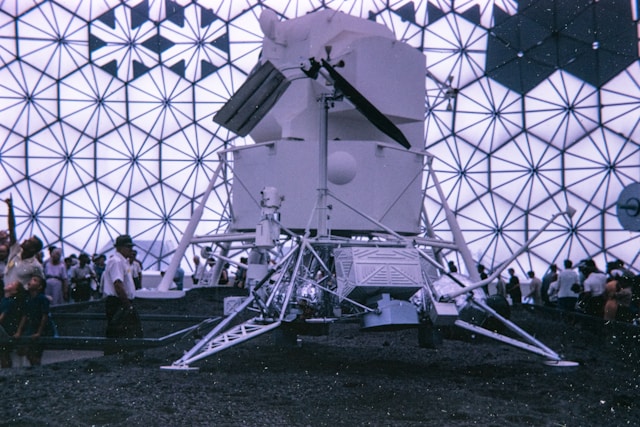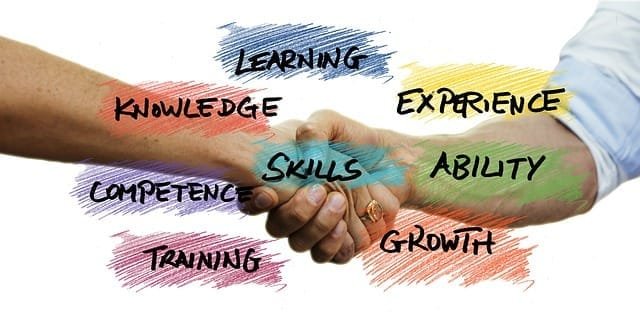Navigating the AI-Powered World: Benefits and Concerns
The Transformational Benefits of an AI-Powered World in Society
There is a revolution in efficiency and effectiveness in the AI-powered world, as artificial intelligence brings integration into all areas of society. One sector wherein the benefits of AI can be seen in sharp relief is the medical or health sector. There have been several improvements introduced to telemedicine platforms due to AI algorithms. Telemedicine helps doctors work precisely in diagnosing patients. An AI-driven system checks the medical images with great precision. This innovation not only backs up healthcare providers with choices. It also brings other improvements that impact the patient. These changes make healthcare more accessible and timely.

One major advantage of AI technology is personalized education. Adaptive learning systems harness the power of artificial intelligence. They tailor educational experiences to meet the individual needs of a student. Such systems analyze the learning and performance patterns of the student. They provide customized resources and interventions. As a result, learning outcomes can improve. Students receive support accordingly to fill the gaps of understanding and hence succeed in academics.
AI in Business Decision-Making: Gaining a Competitive Edge
Business decision-making has, by now, taken an open front spot as a result of the impacts of AI. By applying automated data analysis, firms can examine information quickly. Within seconds, they can conclude trends or insights. These tasks would be too tough for a human without such a system. In this respect, the business will always be ready to make the best decisions. It can also come up with innovative ideas in response to market demands. Therefore, by harnessing AI based on data-driven insights, they achieve their competitive edge that brings economic growth.
These have collectively been some of the leading examples of how AI has altered life. It needs to be developed responsibly. Concerns over job displacement by AI persist. The use of data for purposes unknown to users is also concerning. However, there are other benefits. These include improved health delivery, education, and more efficient operation of businesses. They have great potential to fuel innovation and advancement in society.
Concerns and Ethical Dilemmas Surrounding AI Technology
AI is quickly integrated into many sectors. This integration addresses many of the significant concerns that society has about its impact. This includes the displacement of jobs due to automation. Manufacturing and retail industries are slowly becoming accustomed to using such technologies. Professional services are also adapting for efficiency and cost-cutting purposes. As machines start taking on tasks that humans once did, people feel uncertain about their job security. A notable example of this is how automated checkout in retailing has decreased the number of cashiers. This job no longer needs to exist in large quantities. Therefore, it raises the pressure for reskilling.
Balancing AI Advancements with Data Privacy and Security
Another issue linked to AI is data privacy. Since AI systems require huge data sets to function correctly, personal data is ever more vulnerable to misuse. Various examples of high-profile violations show the vulnerabilities of AI-technology-driven platforms. Sensitive data protection is provided so inadequately that some of these breaches even open up improper access. The resulting mistrust of consumers leads to demands for tougher regulations in data management practice. The question then arises about how to balance the gains of AI. There is a requirement for robust data security measures that protect individuals’ privacy.
Ethical discussions need to be part of AI development. The developers and the policymakers must seek responsible AI practices to prevent negative implications. This involves handling inherent biases in the data sets. These biases have implications for discriminatory effects. Such effects occur in applications like hiring algorithms that favor certain demographics over others. This requires us to establish ethical rules for the AI technology system. This ensures all systems operate within commonly accepted moral boundaries. Recognizing potential fallacies is crucial. It should lead to societal input on how AI should be developed. This approach seeks to maximize the advantages of AI while addressing its ethical dilemmas.
AI’s Impact on Daily Life and Personal Experiences
AI is now very prevalent in our daily lives. It changes the way we use technology. It also alters our routines and the way we interface with each other. Many personal assistants like Siri and Alexa use AI algorithms. Smarter home devices upgrade our abodes. They make tasks more fluid, efficient, and seamless.
A typical instance would be in smart home applications, which manage everything from lighting to security systems. For instance, a user may find himself programming his smart thermostat to optimize energy usage. This supports the environmental goals but also saves on utility bills. Such experiences reflect how AI impacts daily life, allowing people to enjoy greater control and customization within their homes.
AI in Education: Personalizing Learning for Student Success
More than that, AI has proven helpful in education. Educational platforms use AI technologies to personalize learning experiences, adapting to the individual needs and learning paces of students. As students work through these platforms, they receive content tailored to improve understanding and retention, demonstrating the benefits of AI in the classroom.
However, the challenges do not exempt the implementation of AI technology. While discussing the potential job losses that favor machine automation, most of the conversation focuses on the ethical value of the development of AI. On top of that, with the increasing role of AI in businesses when making a decision, such innovations bring forth more concern between innovation and the stability of workforces.
People living in cities experience AI differently by way of navigation applications informing them about real-time information on traffic and thus their daily routes. This points to data privacy issues at stake and underlines that AI development must be addressed responsibly. Personal experiences relating to this will thus illuminate the dual nature of the AI-powered world in our lives and bring out its conveniences versus the ethical considerations accompanying such conveniences.
Towards Responsible AI Development: Balancing Innovation and Ethics
Development in artificial intelligence (AI) offers societal benefits in health care, educational institutions, and business management decisions. Benefits are offset by concerns about the ethical implications of AI technology. To navigate the complexities of daily life with AI, one needs to embrace a responsible framework for AI development. This framework should ensure more transparency and accountability.
Perhaps the biggest ethical issue is the avoidance of job redundancy from automation, which further fuels social inequalities. As AI systems go increasingly deeper into critical procedures, it is essential to have diverse representations inside the development teams. Higher diversity in AI programming will lead to more diverse perspectives, which eliminates some of the unseen biases that may be baked into the algorithms of these machine systems. This inclusive approach helps in reflecting the needs of different demographic groups and increases the ethical validity of AI applications.
The Need for Comprehensive AI Regulations and Ethical Guidelines
There is an obvious need for continuous discourse about regulations. These regulations must address issues within data privacy, usage, and the ethical operation of AI technologies. Coordination between governments and other stakeholder organizations must provide necessary and comprehensive guidelines toward this development, regulating its activities without hindering innovative production. Such regulations are of prime importance, setting accountability by ensuring audits for systems and making algorithms open sources for public scrutiny; at the same time, ensuring acceptable standards in protecting data about users from further violation.
It’s obvious from examples of thriving activities all over the globe that the inclusion of ethical characteristics into AI may have certain benefits. For instance, users who adopt open AI show much trust towards them due to their systems thus more ease in embedding AI within the society; it becomes the responsibility of humans in charge of innovation advancement to achieve responsible AI. For there to be real advantages as well as neutralizing adverse effects of using ethical AI, people ought to engage in the discussions of ethical AI and AI-Powered World.







